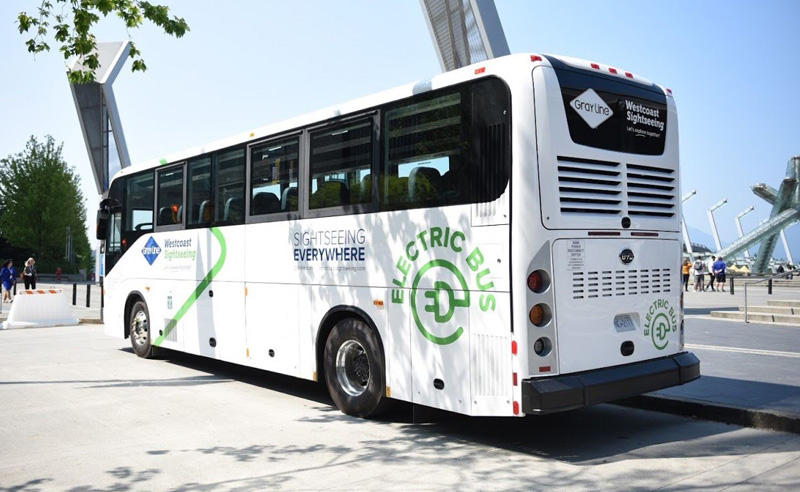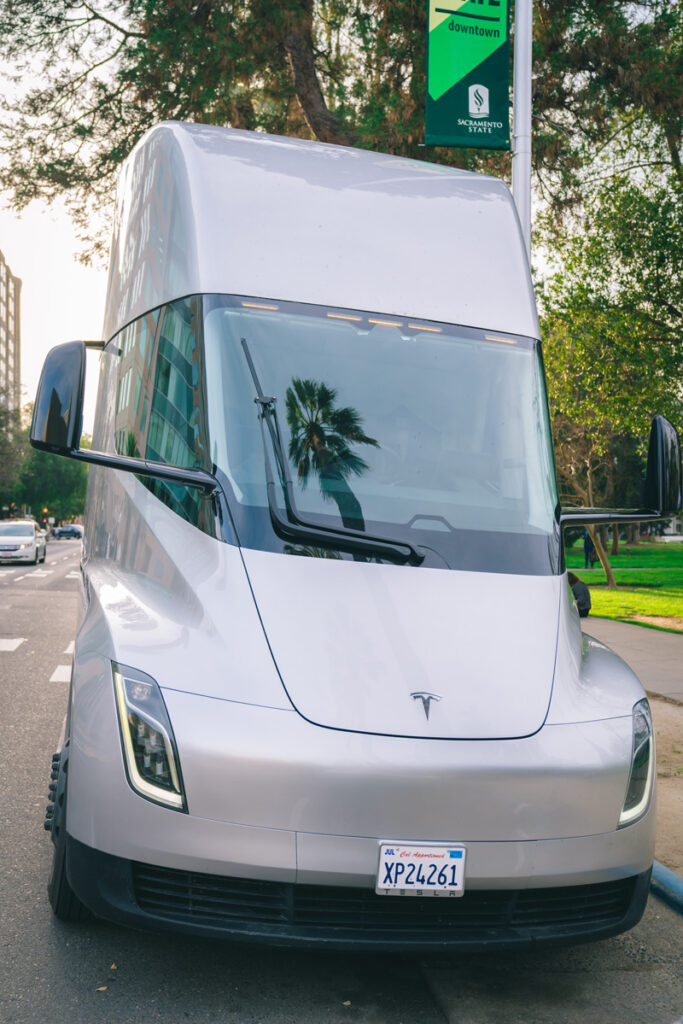Process for a new Global Memorandum of Understanding unveiled
A new global push to reach 100 per cent new zero-emission truck and bus sales by 2050 has been announced. The new Global Memorandum of Understanding (MoU) was kicked off and unveiled by The Transport Decarbonisation Alliance (TDA) at a virtual En Route to COP26 event in partnership with CALSTART’s Global Commercial Vehicle Drive to Zero program and campaign (Drive to Zero™).

“No one nation alone can change the course of the global truck and bus sector’s increasing climate and air quality impacts,” said Bill Van Amburg, Executive Vice President of CALSTART and its Global Drive to Zero campaign, which will convene national governments that sign onto the new Global MoU. “But together we can. By working collaboratively, we can send the most effective and globally-aligned market signals, via common goals coupled with smart and supportive policies, regulations, incentives and investments, to cause this change. Drive to Zero is proud to coordinate this effort. The Global MoU allows us all to pull together in the same direction, at the same time – and speed the pace of decarbonization.”
In advance of the 2050 sales goal, the newly launched Global MoU ensures an interim target of 30 per cent new zero-emission medium- and heavy-duty truck and bus sales by 2030. Under the agreement, frontrunners should aim to reach zero-emission benchmarks sooner.
“The temperature on earth is increasing faster than we thought. Zero-carbon transport worldwide is essential to keep climate change in check and meet our Paris Agreement ambition. If we want all our transport to be carbon neutral by 2050, we know we need at least 30 per cent of the freight fleet carbon neutral by 2030. So, we will need to speed up and accelerate the market for zero-emission vehicles. Rallying the largest possible group of countries behind these targets is why I launched this Global MoU process and expect a large coalition of countries to have signed by COP26,” said Stientje van Veldhoven, Minister for the Environment of The Netherlands and Chair of the TDA. Van Veldhoven made the announcement at the virtual “Is the end of the internal combustion engine coming for freight?” event, which was presented in partnership with TDA, CALSTART, The Climate Group’s EV100 and the World Economic Forum. The event included public and private clean transportation leaders like DHL, Scania, EVBox, the California Air Resources Board, CALSTART and others.

The kick off for this new Global MoU process comes on the heels of two significant zero-emission truck and bus efforts announced earlier this year in the United States of America.
First, in June the California Air Resources Board (CARB) adopted the Advanced Clean Trucks rule, or ACT. ACT calls on commercial truck and van manufacturers in California to incrementally shift to zero-emission new commercial truck and van sales and reach 100 per cent new zero-emission truck and bus sales by 2045.
In July, 15 US States and the District of Columbia signed the Multi-State Zero-Emission Medium- and Heavy-Duty Vehicle Initiative MoU (“Multi-State MoU”). Like the new Global MoU announced today, the goal of the “Multi-State MoU” is to reach 100 per cent zero-emission sales of new trucks and buses by 2050 in participating states with an interim target of 30 per cent zero-emission vehicle sales by 2030. California, Connecticut, Colorado, Hawaii, Maine, Maryland, Massachusetts, New Jersey, New York, North Carolina, Oregon, Pennsylvania, Rhode Island, Vermont, and Washington are all signatories to the “Multi-State MoU.”
“Many international clean truck and bus innovators and leaders in the private and public sector are already working to accelerate the development and deployment of zero-emission trucks and buses. Working in isolation, these efforts will fall short of what is possible,” said Dr. Cristiano Façanha, Global Director of Drive to Zero. “We must work strategically and collaboratively to achieve ambitious but attainable goals through smart policies and requirements, incentives, innovative financing models, supportive programs and global alignment.”
The new Global MoU will be presented at the UN Climate Change Conference (UNFCCC COP26) in Glasgow, in November 2021. Between now and then, organizers will work collaboratively to gain as many signatory nations as possible. Future signatory jurisdictions will be convened by and work through the Clean Energy Ministerial Campaign (CEM) under the Electric Vehicle Initiative, CALSTART’s Global Commercial Vehicle Drive to Zero program (Drive to Zero).
CEM is a global forum for top energy ministers designed to drive forward policies and programs that advance clean energy technology. CEM includes 25 countries and the European Commission representing roughly 90 per cent of global clean energy investments and 75 per cent of global greenhouse gas emissions. CALSTART’s Drive to Zero program and campaign was named an official CEM campaign in September when, at a CEM11 pre-event Canada, China, Chile, Finland, Germany, Japan, Netherlands, Norway and Sweden announced they would work collaboratively – under the auspices of the Drive to Zero campaign and program – to grow zero-emission commercial vehicle manufacturing, infrastructure and deployment at home and globally.

Drive to Zero’s goal is to drive market viability for zero-emission commercial vehicles in key vehicle segments in urban communities by 2025 and achieve full market penetration by 2040. It is built upon a technology strategy, called the beachhead strategy, that identifies the commercial vehicle market segments where zero- and near-zero emission technology can succeed first. Those early successes drive pathways into new segments where the technology can flourish next.
Drive to Zero “pledge partners” include top manufacturers, fleets, government, infrastructure and other leaders like BYD, New Flyer Industries, ARRIVAL, IKEA’s Ingka Group, Ryder, Black and Veatch, Siemens, the California Air Resources Board, the cities of New York, Los Angeles, Oslo, Vancouver and many others. For a full list of Drive to Zero pledge partners, visit our website.
Medium- and heavy-duty vehicles are responsible for 36 per cent of global greenhouse gas emissions from road transportation. And, if current trends continue, transport emissions will more than double by 2050. Organizers of the new Global MoU are calling on all nations invested in advancing zero-emission transportation as a means of addressing climate change to sign on in advance of COP26.
CALSTART – Changing transportation for good
A national non-profit consortium with offices in New York, Michigan, Colorado and California, CALSTART partners with 250+ member company and agency innovators to build a prosperous, efficient and clean high-tech transportation industry. We knock out barriers to modernization and the adoption of clean vehicles. CALSTART is changing transportation for good.